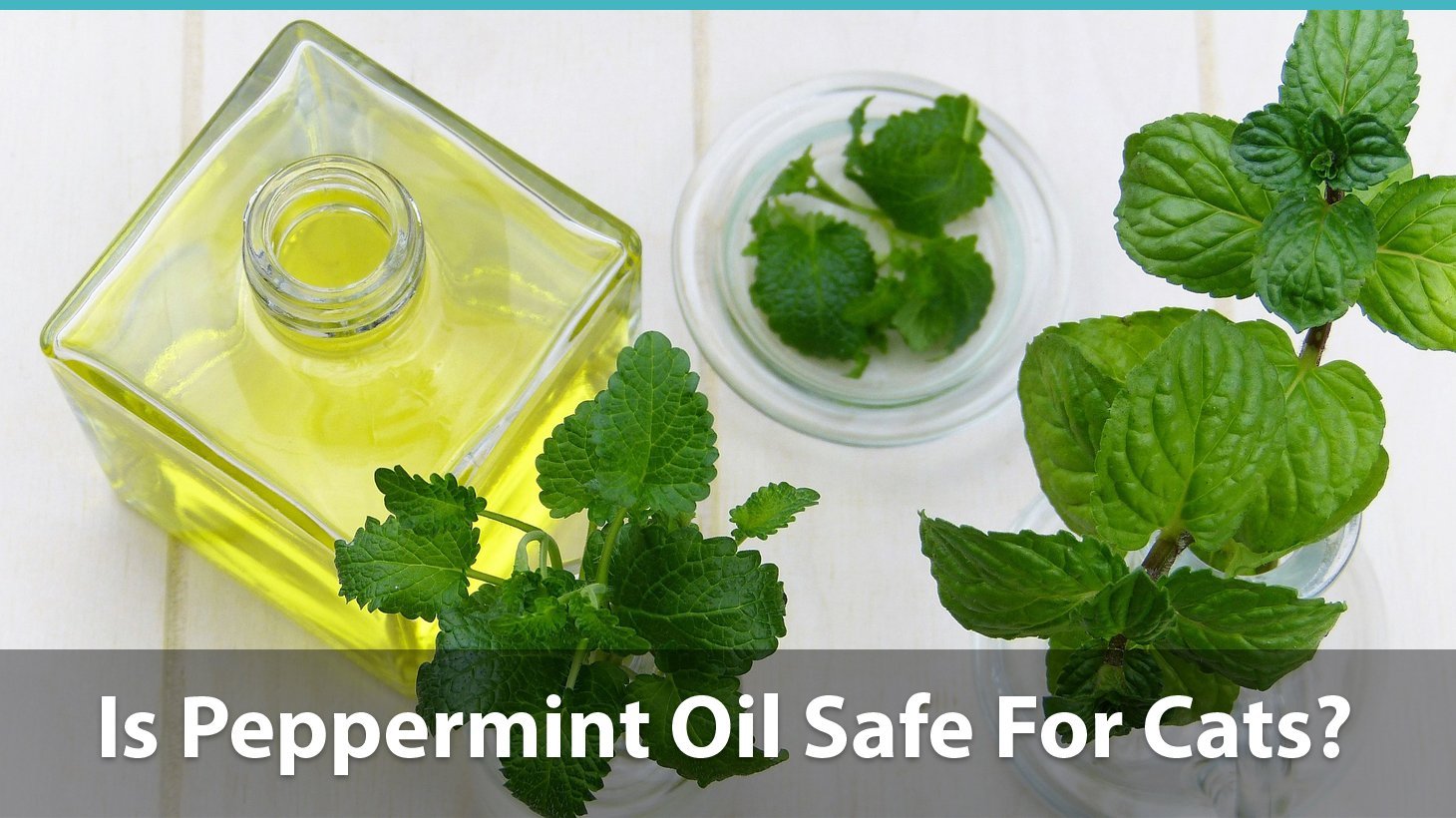Peppermint oil, along with many other essential oils, is often used in a large number of household items, mainly in wellness and beauty products. Apart from the fact that the scent of peppermint makes for an excellent aromatherapy, the essential oil derived from this plant actually has a vast list of applications and benefits.
But is peppermint and peppermint oil safe for cats? Or is this plant and its popular essential oil bad for your kitty?
The ASPCA hasn’t labeled the peppermint plant as toxic to feline furballs. However, that doesn’t mean that the plant or the essential oils derived from it can’t have negative effects on your fluffy friend. In fact, the possible negative effects severely outweigh all of the possible advantages that peppermint has to offer.
Does peppermint have benefits for cats?
It comes only natural for pet parents to ask if something that has tons of benefits for humans can also be beneficial to cats.
Some cat owners believe that a light scent of natural peppermint (not those chemical-induced good-for-nothing sprays) can be quite calming for cats. This belief is derived from the peppermint’s stress-relieving properties to human beings. But does it work the same on cats? That’s a controversial claim. All in all, cat pheromones such as Feliway are always the safer alternative.
And some kitty owners wrongfully believe that peppermint has the same appeal to cats as catnip does. Don’t ever mistake peppermint for catmint/ catnip! They are two completely different plants. Unlike catmint, peppermint will actually bother your cat’s olfaction and other senses rather than please them.
Although it’s possible for a small number of cats to find peppermint appealing or calming, that’s a rarity. In other words, it’s highly unlikely for peppermint and its essential oil to have benefits for your own cat.
Why is peppermint and peppermint oil bad for your cat?
Ingesting or inhaling the plant and its essential oils can pose some serious health risks for your kitty. When inhaled the peppermint oil fumes can cause:
- Aspiration pneumonia
- Breathlessness
- Fever
- Increased heart rate
- Irritation of the nasal passages
- Eye irritation
As you can see, these health complications are indeed serious. Taking them lightly isn’t something you’d want to do just for the sake of the alleged benefits of peppermint oil.
This essential oil can easily irritate the mucus of your pet’s nasal passages, as well as its skin. As such, you should never try applying peppermint oil on your cat’s fur. While it’s a great addition to hair masks for humans, you mustn’t use it for maintaining your cat’s skin and fur smooth and silky.
On top of that some reports claim that peppermint oil can cause even further health issues in cats. Liver damage and central nervous system damage are just some of the problems. Even though each kitty is unique on its own, not even one of these risks is worth the potential harm to your pet. If you think your cat needs to benefit from peppermint and its essential oil, talk to your vet. The doc will prescribe a safer and more beneficial substitute depending on the furball’s needs.
What to do if your cat ingests peppermint or peppermint oil?
Now that you know the dangers of peppermint and peppermint oil for cats, it’s time to see how you can help your kitty if it sniffs or licks this plant’s essential oils.
Look out for symptoms
Sneezing, coughing and even wheezing are all common outcomes of inhaling peppermint fumes. Many kitties will have irritated nasal passages, which in result could produce nose or eye discharge. Drooling, fever, panting and increased heart rate may also occur. Other symptoms include vomiting and loss of appetite.
Depending on how tolerant your cat is to peppermint and peppermint oil, it may not start showing any of these telltale signs at least for several hours. And in some extremely rare cases the furball may not have any side effects to sniffing/ licking peppermint at all.
Take the cat to the vet’s office
Waiting around for the kitty to get better on its own instead of taking it straight to the doc can pose fatal danger. If the cat’s nervous system or breathing is severely affected by the peppermint or peppermint oil, it may die.
The best way to make sure your pet is safe is to keep all peppermint products out of reach. Stay away from peppermint air fresheners and don’t ever let your pet near this plant’s essential oils. Don’t hesitate to seek a professional’s help at the slightest suspicion of inhaling or ingesting peppermint. Sadly, as beneficial as peppermint oil is to humans and as refreshing as that minty scent is, the health risks for your pet just aren’t worth it.

